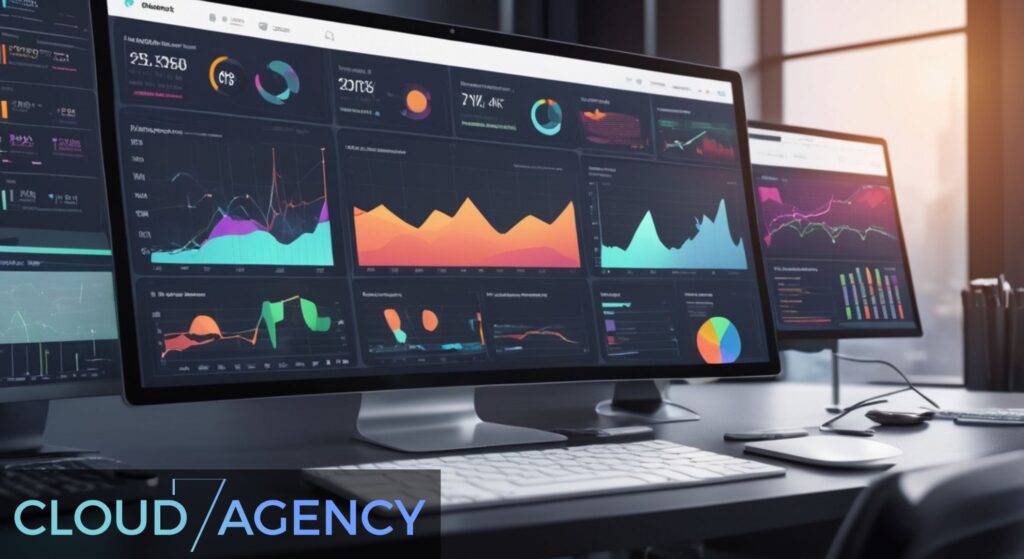In today’s competitive digital landscape, delivering comprehensive and professional SEO reports to clients has become a cornerstone of successful digital marketing agencies. The ability to present clear, actionable insights through well-structured reports not only demonstrates value but also builds trust and long-term client relationships. However, creating these reports manually can be time-consuming and prone to human error, which is where automated reporting tools become invaluable assets for marketing professionals.
The evolution of SEO reporting has transformed dramatically over the past decade. What once required hours of manual data compilation, spreadsheet manipulation, and custom formatting can now be accomplished in minutes through sophisticated automation platforms. These tools not only save precious time but also ensure consistency, accuracy, and professional presentation that clients expect from their digital marketing partners.
Modern clients demand transparency and regular updates on their SEO performance. They want to understand how their investment translates into tangible results, including keyword rankings, organic traffic growth, conversion improvements, and competitive positioning. Meeting these expectations requires access to the best SEO optimization tools that can seamlessly integrate data from multiple sources and present it in digestible, visually appealing formats.
The challenge for many agencies lies in selecting the right combination of tools and establishing efficient workflows that can scale with their client base. As businesses grow and take on more clients, the manual approach to reporting becomes unsustainable. This is where strategic implementation of automated reporting solutions becomes not just beneficial but essential for maintaining service quality while scaling operations.
Furthermore, automated reporting tools enable agencies to focus their human resources on strategic analysis and optimization rather than data compilation. This shift allows teams to provide more value-added services, develop deeper insights, and ultimately deliver better results for their clients. The best SEO tools in the market today offer robust automation capabilities that can handle everything from data collection to report generation and distribution.
Key Takeaways
Automation Saves Time and Resources: Implementing automated SEO reporting tools can reduce report creation time by up to 80%, allowing teams to focus on strategic analysis and optimization activities rather than manual data compilation.
Consistency Builds Trust: Automated reports ensure consistent formatting, metrics, and delivery schedules, which helps build client confidence and demonstrates professionalism in service delivery.
Real-Time Data Access: The best SEO optimization tools provide real-time or near-real-time data updates, enabling agencies to respond quickly to algorithm changes, ranking fluctuations, or emerging opportunities.
Customization Enhances Value: Modern reporting tools offer extensive customization options, allowing agencies to tailor reports to specific client needs, industry requirements, and stakeholder preferences.
Integration Capabilities Matter: Tools that integrate with multiple data sources including Google Analytics, Search Console, social media platforms, and third-party SEO tools provide more comprehensive insights.
White-Label Options Strengthen Branding: Many automated reporting platforms offer white-label solutions that allow agencies to maintain their brand identity while leveraging powerful reporting capabilities.
Scalability Supports Growth: Automated reporting systems can easily scale to accommodate growing client bases without proportional increases in manual labor or operational complexity.
Data Accuracy Improves Decision Making: Automated data collection eliminates human error in transcription and calculation, leading to more accurate insights and better strategic decisions.
Understanding the SEO Reporting Landscape
The SEO reporting landscape has undergone significant transformation as search engines have become more sophisticated and client expectations have evolved. Today’s SEO reports must go beyond simple keyword ranking updates to provide comprehensive insights into organic performance, user behavior, technical health, and competitive positioning. This evolution has driven the development of increasingly sophisticated reporting tools that can handle complex data integration and analysis.

Modern SEO reporting encompasses multiple data streams including organic search performance, technical SEO audits, content performance metrics, backlink analysis, local search visibility, and conversion tracking. Each of these areas requires specialized tools and expertise to collect, analyze, and present effectively. The best SEO tools available today recognize this complexity and offer integrated solutions that can handle multiple aspects of SEO performance within unified reporting frameworks.
Client expectations have also shifted significantly toward real-time insights and actionable recommendations. Rather than simply receiving monthly ranking reports, clients now expect to understand the correlation between SEO activities and business outcomes. They want to see how organic search performance impacts revenue, leads, and other key performance indicators. This demand has pushed reporting tools to become more sophisticated in their analytical capabilities and presentation options.
The competitive nature of digital marketing has also influenced reporting standards. Agencies must differentiate themselves not only through the results they achieve but also through the quality and professionalism of their reporting. Clients often evaluate potential partners based on their ability to provide clear, comprehensive, and visually appealing reports that demonstrate expertise and attention to detail.
Essential Features of Professional SEO Reporting Tools
When evaluating the best SEO optimization tools for automated reporting, several key features distinguish professional-grade solutions from basic alternatives. Data integration capabilities represent perhaps the most critical feature, as comprehensive SEO reporting requires information from multiple sources including Google Analytics, Google Search Console, third-party ranking tools, social media platforms, and various SEO analysis tools.
Customization flexibility stands as another essential feature that separates superior reporting tools from generic solutions. Different clients have varying needs, preferences, and levels of technical sophistication. Some may prefer high-level executive summaries focusing on business impact, while others require detailed technical analysis with granular metrics. The best SEO tools provide extensive customization options including custom branding, flexible report layouts, selective metric inclusion, and adjustable data visualization formats.
Automation scheduling and distribution capabilities ensure consistent communication with clients while reducing manual workload for agency teams. Professional reporting tools should offer flexible scheduling options, multiple distribution methods including email, client portals, and API access, and automated alert systems for significant changes or issues. These features enable agencies to maintain regular communication without constant manual intervention.
Data visualization quality significantly impacts report effectiveness and client satisfaction. Modern reporting tools should provide a variety of chart types, interactive elements, and visual design options that make complex data accessible and engaging. The ability to create compelling visual narratives from raw SEO data often determines whether clients understand and act upon the insights provided.
White-label capabilities allow agencies to maintain their brand identity while leveraging powerful reporting infrastructure. This feature includes custom logos, color schemes, domain hosting, and branded URLs that create seamless client experiences. Many agencies consider white-label options essential for maintaining professional appearance and client trust.
Real-time or near-real-time data updates have become increasingly important as SEO landscapes change rapidly. Tools that can provide current information enable agencies to respond quickly to algorithm updates, ranking changes, or emerging opportunities. This responsiveness often differentiates successful agencies from those that rely on outdated information.
Implementation Strategies for Automated Reporting
Successfully implementing automated SEO reporting requires strategic planning and systematic execution to ensure optimal results and client satisfaction. The implementation process begins with thorough assessment of current reporting practices, client requirements, and available resources. This evaluation helps identify gaps in existing processes and determines the specific features and capabilities needed from automated reporting solutions.

Tool selection represents a critical decision point that impacts long-term success and scalability. Agencies should evaluate potential solutions based on integration capabilities, customization options, pricing structures, support quality, and growth potential. The best SEO optimization tools offer trial periods or demonstration opportunities that allow teams to test functionality and compatibility before making commitments.
Data migration and integration planning ensures smooth transitions from existing reporting systems to automated solutions. This process involves mapping current data sources, establishing new connections, and validating data accuracy across platforms. Proper planning during this phase prevents disruptions to client reporting schedules and maintains data continuity throughout the transition.
Template development and customization create the foundation for consistent, professional reporting across all client accounts. Agencies should develop standardized templates that can be easily customized for specific client needs while maintaining brand consistency and professional appearance. These templates should include sections for executive summaries, detailed metrics, trend analysis, and actionable recommendations.
Team training and workflow establishment ensure that all team members can effectively utilize new reporting tools and maintain consistent quality standards. This training should cover tool functionality, report customization, data interpretation, and client communication protocols. Establishing clear workflows helps prevent errors and ensures efficient report generation and distribution.
Quality assurance processes validate report accuracy and presentation before client delivery. These processes should include data verification, formatting checks, and content review procedures that catch potential issues before reports reach clients. Regular quality audits help maintain high standards and identify opportunities for improvement.
Maximizing Client Value Through Advanced Reporting
Advanced SEO reporting goes beyond basic metrics to provide strategic insights that drive business growth and demonstrate clear value to clients. The most effective reports connect SEO performance directly to business outcomes, showing how organic search improvements translate into increased revenue, leads, or other key performance indicators. This connection helps clients understand the real impact of their SEO investment and justifies continued or expanded engagement.
Competitive analysis integration adds significant value by providing context for client performance relative to industry peers and direct competitors. The best SEO tools offer competitive intelligence features that can track competitor rankings, content strategies, and market share changes. Including this information in automated reports helps clients understand their competitive position and identify opportunities for improvement.
Predictive analytics and forecasting capabilities enable agencies to provide forward-looking insights rather than just historical performance data. Advanced reporting tools can analyze trends, seasonal patterns, and algorithm impacts to project future performance and recommend proactive strategies. This predictive approach demonstrates strategic thinking and helps clients make informed decisions about resource allocation and strategy adjustments.
Custom metric development allows agencies to track and report on KPIs that are specifically relevant to each client’s business model and objectives. Rather than relying solely on standard SEO metrics, advanced reporting can include custom calculations, business-specific conversions, and industry-relevant benchmarks. This customization makes reports more relevant and actionable for individual clients.
Interactive reporting elements enhance client engagement and understanding by allowing stakeholders to explore data at their preferred level of detail. Modern reporting platforms offer interactive dashboards, drill-down capabilities, and real-time data access that enable clients to investigate specific metrics or time periods independently. This interactivity increases report utility and reduces the need for follow-up questions or clarifications.
Actionable recommendations and strategic guidance transform reports from simple data presentations into valuable consulting documents. The most effective reports include specific, prioritized recommendations based on data analysis, along with estimated impact and implementation timelines. This guidance helps clients understand not just what happened, but what they should do next to improve their SEO performance.
Scaling SEO Reporting Operations
As digital marketing agencies grow and acquire more clients, scaling SEO reporting operations becomes essential for maintaining service quality while managing increased workload. Successful scaling requires systematic approaches to automation, standardization, and resource management that can accommodate growth without proportional increases in manual effort or operational complexity.

Process standardization creates the foundation for scalable reporting operations by establishing consistent workflows, quality standards, and delivery schedules across all client accounts. Standardized processes reduce training time for new team members, minimize errors, and ensure consistent service quality regardless of which team member handles specific accounts. The best SEO optimization tools support process standardization through template libraries, automated workflows, and quality control features.
Resource allocation optimization helps agencies balance automation investments with human expertise to maximize efficiency and value delivery. While automated tools handle data collection and basic report generation, human analysts focus on interpretation, strategy development, and client communication. This division of labor allows agencies to serve more clients while maintaining high-quality strategic guidance.
Client segmentation strategies enable agencies to provide appropriate service levels and reporting complexity based on client size, budget, and sophistication. Different client segments may require different reporting frequencies, detail levels, and communication approaches. Automated reporting tools can support multiple service tiers through customizable templates and delivery options.
Technology integration planning ensures that reporting tools can grow and adapt with agency needs over time. Scalable solutions should offer API access, integration capabilities with other marketing tools, and flexible pricing structures that accommodate business growth. Agencies should evaluate not just current needs but also projected requirements as they plan for expansion.
Quality maintenance systems become increasingly important as reporting volume increases. Automated quality checks, regular audits, and feedback collection help maintain high standards even as operations scale. These systems should identify potential issues early and provide mechanisms for continuous improvement in reporting processes and client satisfaction.
At C7A, we understand the challenges agencies face when scaling their SEO reporting operations. Our expertise in digital marketing automation helps agencies implement efficient reporting systems that grow with their business while maintaining the quality and customization that clients expect.
Frequently Asked Questions
What are the most important features to look for in automated SEO reporting tools?
The most critical features include comprehensive data integration capabilities, extensive customization options, white-label branding, real-time data updates, and reliable automation scheduling. Look for tools that can connect to multiple data sources including Google Analytics, Search Console, and third-party SEO platforms while offering flexible report formatting and distribution options.
How can automated reporting tools improve client relationships?
Automated reporting improves client relationships by ensuring consistent delivery schedules, maintaining professional presentation standards, and providing more frequent updates with less manual effort. This consistency builds trust and demonstrates reliability, while the time saved on report creation can be redirected toward strategic analysis and client consultation.
What’s the typical ROI timeline for implementing automated SEO reporting?
Most agencies see positive ROI within 3-6 months of implementing automated reporting tools. The time savings on report creation typically pays for tool costs within the first quarter, while improved client satisfaction and retention provide longer-term value. Agencies handling 10 or more clients usually see immediate benefits from automation.
How do I ensure data accuracy when using automated reporting tools?
Maintain data accuracy through regular validation checks, proper tool configuration, and established quality assurance processes. Verify that all data connections are properly configured, implement automated alerts for unusual data patterns, and conduct periodic manual audits to confirm report accuracy. The best SEO tools provide data validation features and error detection capabilities.
Can automated reporting tools handle custom KPIs and business-specific metrics?
Yes, advanced automated reporting platforms offer custom metric creation, calculated fields, and integration with business intelligence tools. These features allow agencies to track and report on business-specific KPIs, industry benchmarks, and custom conversion metrics that align with individual client objectives and business models.
What’s the difference between basic and enterprise-level SEO reporting tools?
Enterprise-level tools typically offer more extensive integration options, advanced customization capabilities, white-label features, API access, and dedicated support. They also provide more sophisticated data analysis features, custom metric creation, and scalability options that support larger client bases and more complex reporting requirements.
How often should automated SEO reports be generated and delivered?
Report frequency depends on client needs and service agreements, but monthly reports are most common for comprehensive SEO analysis. Weekly or bi-weekly reports work well for active campaigns or competitive industries, while quarterly reports may suffice for maintenance-level clients. The best SEO optimization tools allow flexible scheduling to accommodate different client preferences.
What training is required for teams to effectively use automated reporting tools?
Training requirements vary by tool complexity, but most platforms require 1-2 weeks for basic proficiency and 4-6 weeks for advanced features. Focus training on tool navigation, report customization, data interpretation, and quality assurance processes. Many vendors provide training resources, documentation, and support to facilitate team adoption.
Conclusion
The evolution of SEO reporting from manual compilation to sophisticated automation represents a fundamental shift in how digital marketing agencies deliver value to their clients. Implementing the best SEO optimization tools for automated reporting not only improves operational efficiency but also enhances the quality and consistency of client communications. As the digital marketing landscape continues to evolve, agencies that embrace automation while maintaining focus on strategic analysis and client relationships will be best positioned for sustained success.
The investment in automated reporting tools pays dividends through improved client satisfaction, increased operational efficiency, and enhanced scalability. By carefully selecting tools that align with agency needs and client expectations, marketing professionals can create reporting systems that grow with their business while maintaining the quality and customization that distinguish professional services.
Success in automated SEO reporting requires more than just tool selection; it demands strategic implementation, team training, and ongoing optimization of processes and presentations. The best SEO tools provide the foundation, but human expertise in analysis, strategy, and client communication remains essential for delivering maximum value and building lasting client relationships in the competitive digital marketing landscape.

